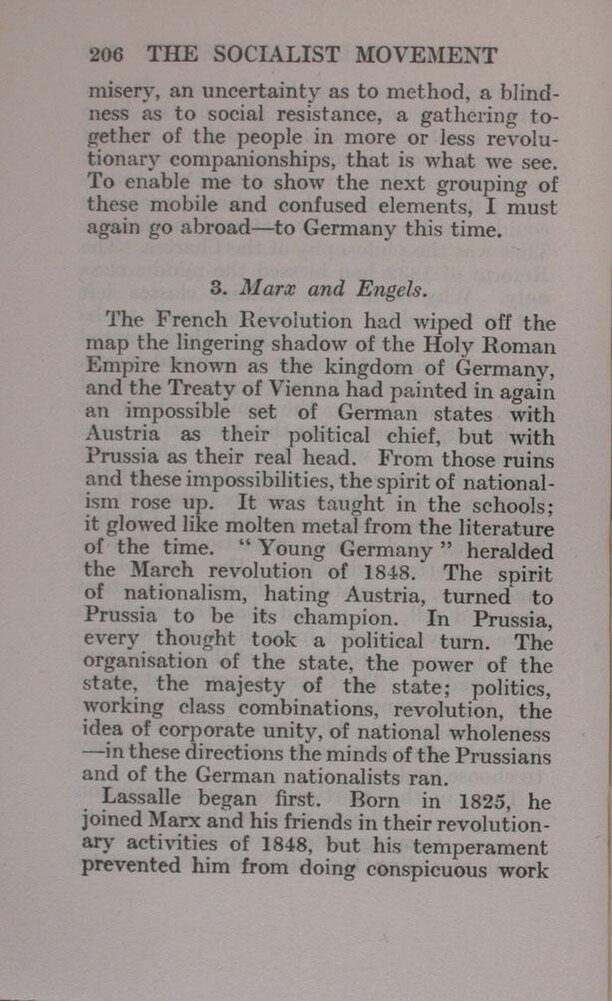misery, an uncertainty as to method, a blindness as to social resistance, a gathering together of the people in more or less revolutionary companionships, that is what we see. To enable me to show the next grouping of these mobile and confused elements, I must again go abroad—to Germany this time.
3. Marx and Engels.
The French Revolution had wiped off the map the lingering shadow of the Holy Roman Empire known as the kingdom of Germany, and the Treaty of Vienna had painted in again an impossible set of German states with Austria as their political chief, but with Prussia as their real head. From those ruins and these impossibilities, the spirit of nationalism rose up. It was taught in the schools; it glowed like molten metal from the literature of the time. "Young Germany" heralded the March revolution of 1848. The spirit of nationalism, hating Austria, turned to Prussia to be its champion. In Prussia, every thought took a political turn. The organisation of the state, the power of the state, the majesty of the state; politics, working class combinations, revolution, the idea of corporate unity, of national wholeness—in these directions the minds of the Prussians and of the German nationalists ran.
Lassalle began first. Born in 1825, he joined Marx and his friends in their revolutionary activities of 1848, but his temperament prevented him from doing conspicuous work
